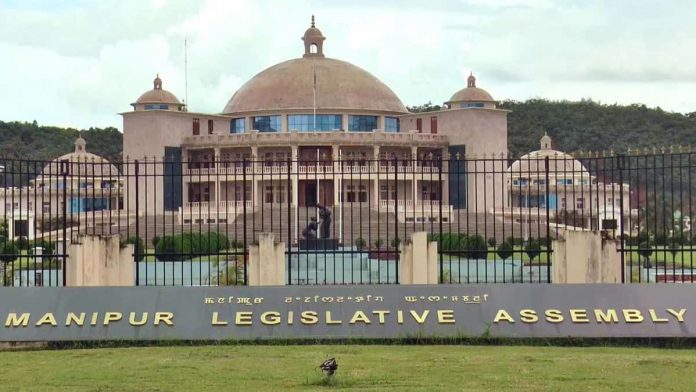The Manipur High Court recently disposed of a Public Interest Litigation (PIL) filed assailing the action of the authorities in converting a Public Park and proposing to use it for construction of a Tribal Colony.
The petitioners challenged the order dated 26.06.2021 issued by the Deputy Secretary, Municipal Administration, Housing & Urban Development (MAHUD) Department, Government of Manipur, referring to the Cabinet approval at its meeting held on 23.06.2021, in this regard.
By order dated 23.12.2021, the High Court took note of the fact that Section 33 of the Manipur Town and Country Planning Act, 1975, prescribes the procedure to be followed for change of land use and that the said procedure had not been adopted to convert the subject land, which was shown as ‘Park A’ in the Layout Plan for National Games Village at Meitei Langol, so as to use it for construction of a Colony. The High Court accordingly directed the authorities to maintain status quo in all respects obtaining as on that date in relation to the subject land and to discontinue all construction activities.
On May 26 , the Division Bench of Chief Justice Sanjay Kumar and Justice Lanusungkum Jamir found that despite the order of status quo passed on 23.12.2021, the authorities thought it appropriate to initiate the process under the Manipur Town and Country Planning Act, 1975, for modification of the existing scheme. However, as per the procedure prescribed under Section 33(5) of the said Act, the proposed modified scheme is to be published in at least one local newspaper available in the locality which would be affected by such modification.
Further the Court noted that the material placed on record reflects that the publication of the notified modified scheme was done in English language even in local Manipuri newspapers.
“The purpose and intent of such publication in the local newspapers is to put the general public on notice as to what modifications are proposed, so that the affected persons can put in their objections, if any.
When such notifications are published in a local vernacular newspaper, the presumption, ordinarily, would be that the reader of such a newspaper does not understand English and that is the reason why he or she is reading a vernacular newspaper.
That being so, the publication of the modified scheme in such vernacular newspapers must also be in the vernacular and not in English. Therefore, the procedure adopted by the authorities in this regard does not meet the required standard and falls short of the mandatory prescription”, observed the Court.
Ch. Ngongo, counsel for the respondents contended that Section 33(5) of the Act does not prescribe that the publication in the newspapers should be in the local language and not in English.
On this the Court went on to observe that this argument needs mention only to be rejected. There is no mention in the provision of any particular language.
If the contention is to be accepted, it would be permissible for the authorities to resort to publication of the notification in any foreign language also and submit that there is proper compliance.
The intent and purport of the provision is to put the general public on notice of the modified scheme and for that purpose, the publication of the modified scheme must be in a language which is known and understood by the targeted public.
Therefore, when such publication is resorted to in a local vernacular newspaper, the same should also be in that vernacular and not in English language or any other foreign language.
As the authorities have now deemed it fit and proper to take recourse to the statutory procedure for modifying the existing scheme so as to undertake construction in the site earlier reserved for a park, it is for them to go through the process and take a reasoned decision as to whether conversion and change of land use is desirable in the case on hand. It would be premature for the High Court to venture any opinion on the merits of that issue at this stage , held by the Bench.
Therefore the Court directed that the authorities shall take recourse to the statutory procedure in true letter and spirit, duly noting the observations made hereinabove with regard to proper publication in newspapers being carried out so as to inform the targeted public of the proposed modifications.
Further the court clarified that construction activities shall not be resumed until compliance with the procedure prescribed under the Act is achieved in all respects for giving effect to the modified scheme.


